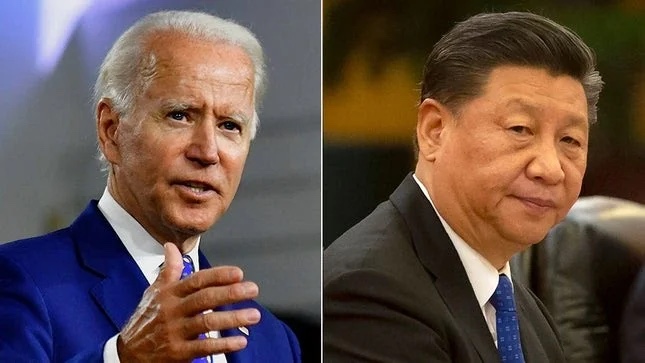
US must prepare for cold war with China
GETTY IMAGES
BY LAWRENCE J. HAAS, OPINION CONTRIBUTOR
The views expressed by contributors are their own and not the view of The Hill
The United States and China show growing signs of entering a long-term cold war, strikingly similar to the U.S.-Soviet cold war of decades past and demanding the same dogged determination that Washington displayed during that earlier conflict to protect its interests and defend its allies.
Like the U.S.-Soviet conflict, the Sino-American one is rooted in competition between alternative political and economic systems – one free and democratic, the other unfree and authoritarian – for influence around the world, with enormous implications for the well-being of billions of people.
Also like the U.S.-Soviet conflict, Washington will need a comprehensive strategy to “contain” Beijing’s expansionist impulses. While (hopefully) avoiding a military confrontation with Beijing, Washington will need to maintain an unchallenged military capacity to protect its presence in Asia and other regions as China seeks to dislodge or overshadow it, and to use public diplomacy effectively as the two nations compete for the loyalty of grassroots populations around the world.
The signs of long-term U.S.-Sino conflict are unmistakable, and similarities to the cold war of yesteryear are uncanny.
During the cold war, Soviet leaders boldly predicted an inevitable victory, as the United States presided over what they considered a decaying capitalist structure. Speaking to the United Nations in late 1960, for instance, Nikita Khrushchev mused that “socialism is replacing capitalism” across the developing world.
Similarly, Chinese leader Xi Jinping now asserts that “the East is rising, while the West is in decline” – a contention that President Biden dismissed in his phone chat with Xi. U.S. officials worry that, convinced of America’s decline, Beijing may raise the risks of a direct U.S.-China confrontation by testing U.S. resolve a bit too recklessly.
During the cold war, U.S.-Soviet tensions peaked over the divided city of Berlin, with Khrushchev threatening to force the United States out of West Berlin and President Kennedy making clear that he would go to war with the Soviets – with nuclear weapons perhaps his only option for prevailing – rather than sacrifice the U.S. position there and, in turn, rattle the Western Alliance
Similarly, U.S. officials are growing concerned that an increasingly aggressive Beijing has its sights on ending the ambiguous status of Taiwan by invading or finding some other way to bring the U.S.-backed island under its wings. Once again, U.S. officials are making clear that Washington won’t sit by, abandon a nation that it has formally committed to support, and rattle its allies in the process.
During the cold war, the Soviet Union sought to extend its footprint where it could, forcing the United States to push back. When, in the summer of 1946, Soviet leader Josef Stalin pressured Turkey to put the Turkish Straits under Soviet-Turkish control, President Truman sent the supercarrier Franklin D. Roosevelt to join the Missouri in the Mediterranean and directed U.S. officials to tell Moscow that Washington would enforce Turkey’s sovereignty and its sole responsibility for the straits.
Similarly, in response to aggressive Chinese activities in both the South China Sea and the East China Sea, U.S. officials have criticized what they regard as Beijing’s threats to the rules-based international order. After meeting with Japanese officials in Tokyo, U.S. officials reiterated America’s commitment to Japan’s defense, including to protect the Senkaku Islands that, they fear, China is eyeing.
No comments:
Post a Comment